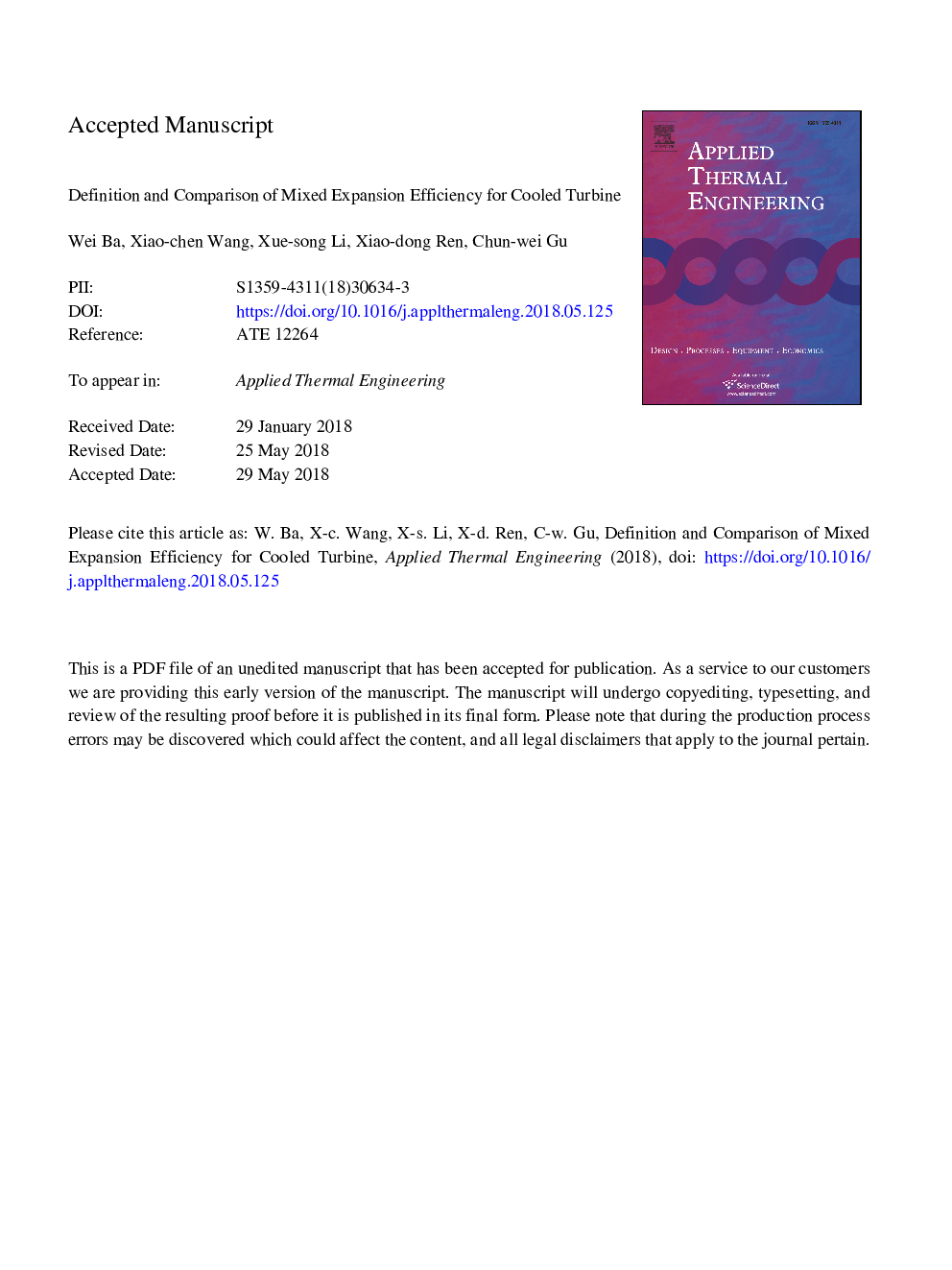| Article ID | Journal | Published Year | Pages | File Type |
|---|---|---|---|---|
| 7044934 | Applied Thermal Engineering | 2018 | 30 Pages |
Abstract
Over the years, there has been continual increase in the temperature inside a turbine inlet through improvements in the gas turbine efficiency and specific power, and cooling technologies to deal with such temperature increases have been under development for decades. However, the definition of “efficiency” remains ambiguous for cooled turbines, with no consensus achieved on the ideal expansion process. This paper first reviews several proposed definitions, Hartsel, MP (mainstream-pressure), FR (fully reversible), and WP (weighted-pressure) of efficiency and then presents a new one to overcome the existing shortage. The increase in entropy related to mixing is first analysed to demonstrate that FR efficiency consistently provides a significantly lower value than the other definitions, assuming the unavoidable entropy generation to be zero. The flow mixing in a smooth adiabatic channel is then analysed to show that the WP ideal process is not sufficiently “ideal.” A fully mixed (FM) definition is then proposed based on a physical mixing process, followed by isentropic expansion, the value of which does not differ significantly from most of the proposed definitions, and is able to consider the influence of the inlet Mach number on the hypothetical ideal process. Finally, this paper compares several definitions in view of the thermodynamic cycle, and shows that the FM definition can determine the performance potential of an existing turbine better than the other definitions, which means that the FM efficiency can be used as a reliable tool for the performance evaluation and optimization of a cooled turbine.
Keywords
Related Topics
Physical Sciences and Engineering
Chemical Engineering
Fluid Flow and Transfer Processes
Authors
Wei Ba, Xiao-chen Wang, Xue-song Li, Xiao-dong Ren, Chun-wei Gu,
